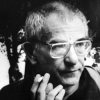Krzysztof Kieslowski

Krzysztof Kieslowski
Krzysztof Kieślowski; 27 June 1941 – 13 March 1996) was an influential Polish art-house film director and screenwriter known internationally for The Decalogue, The Double Life of Véronique, and The Three Colors Trilogy. Kieślowski received numerous awards during his career, including the Cannes Film Festival Jury Prize, FIPRESCI Prize, and Prize of the Ecumenical Jury; the Venice Film Festival FIPRESCI Prize, Golden Lion, and OCIC Award; and the Berlin International Film Festival Silver Bear. In 1995 he received Academy Award...
NationalityPolish
ProfessionDirector
Date of Birth27 June 1941
CountryPoland
We're always looking at this love through the eyes of the person who is suffering because of this love.
I was happy when I got into film school. I'd simply satisfied my ambition to show them that I could get in - nothing else - although I do believe they shouldn't have accepted me. I was a complete idiot. I can't understand why they took me. Probably because I'd tried three times.
To tell you the truth, in my work, love is always in opposition to the elements. It creates dilemmas. It brings in suffering. We can't live with it, and we can't live without it. You'll rarely find a happy ending in my work.
I have one good characteristic: I'm a pessimist, so I always imagine the worst - always. To me, the future is a black hole.
The films should be influenced by the individual commandments to the same degree that the commandments influence our daily lives.
Of course I'd like to get beyond the concrete. But it's really difficult. Very difficult.
We all steal, but if we're smart we steal from great directors. Then, we can call it influence.
The relationship between the films and the individual Commandments [is] a tentative one. The films should be influenced by the individual Commandments to the same degree that the Commandments influence our daily lives.
For 6,000 years, these rules have been unquestionably right. And yet we break them every day. People feel that something is wrong in life. There is some kind of atmosphere that makes people now turn to other values. They want to contemplate the basic questions of life, and that is probably the real reason for wanting to tell these stories.
If I have a goal, then it is to escape from this literalism. I'll never achieve it; in the same way that I'll never manage to describe what really dwells within my character, although I keep on trying.
I feel Polish. More specifically, I feel like I'm from the tiny village in the Northeast of Poland where I have a house and where I love to spend time. But I don't work there. I cut wood.
I have no problem being with people of different nationalities.
We understand the concept of equality, that we all want to be equal. But I think this is absolutely not true. I don't think anybody really wants to be equal. Everybody wants to be more equal.
I really don't know anything about music, and it's no great experience for me. But I do think that music has a purifying element.